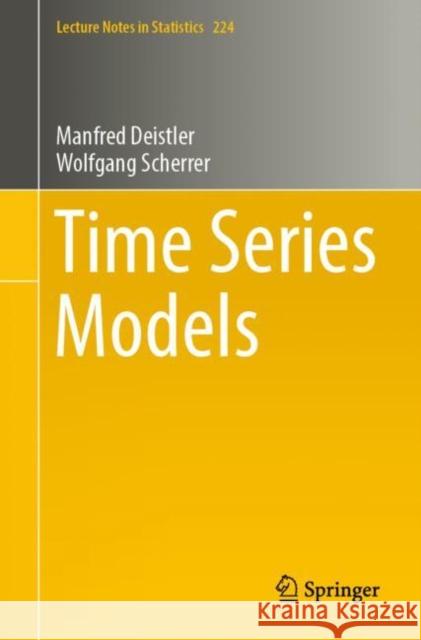Time Series Models » książka
Time Series Models
ISBN-13: 9783031132124 / Angielski / Miękka / 2022 / 201 str.
This textbook provides a self-contained presentation of the theory and models of time series analysis. Putting an emphasis on weakly stationary processes and linear dynamic models, it describes the basic concepts, ideas, methods and results in a mathematically well-founded form and includes numerous examples and exercises. The first part presents the theory of weakly stationary processes in time and frequency domain, including prediction and filtering. The second part deals with multivariate AR, ARMA and state space models, which are the most important model classes for stationary processes, and addresses the structure of AR, ARMA and state space systems, Yule-Walker equations, factorization of rational spectral densities and Kalman filtering. Finally, there is a discussion of Granger causality, linear dynamic factor models and (G)ARCH models. The book provides a solid basis for advanced mathematics students and researchers in fields such as data-driven modeling, forecasting and filtering, which are important in statistics, control engineering, financial mathematics, econometrics and signal processing, among other subjects.
This textbook provides a self-contained presentation of the theory and models of time series analysis. Putting an emphasis on weakly stationary processes and linear dynamic models, it describes the basic concepts, ideas, methods and results in a mathematically well-founded form and includes numerous examples and exercises. The first part presents the theory of weakly stationary processes in time and frequency domain, including prediction and filtering. The second part deals with multivariate AR, ARMA and state space models, which are the most important model classes for stationary processes, and addresses the structure of AR, ARMA and state space systems, Yule-Walker equations, factorization of rational spectral densities and Kalman filtering. Finally, there is a discussion of Granger causality, linear dynamic factor models and (G)ARCH models. The book provides a solid basis for advanced mathematics students and researchers in fields such as data-driven modeling, forecasting and filtering, which are important in statistics, control engineering, financial mathematics, econometrics and signal processing, among other subjects.











